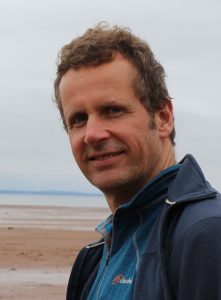A Collaborative Specialization in Community Development Thrives Online
November 13/2020
by Françoise Makanda, Communications Officer at DLSPH
As online communities thrive, Prof. Blake Poland is teaching students about community development through his meetup group.
“The basic idea is to create an opportunity for students interested in community development to come together in a learning space where they can share and learn with people doing this work out in the community,” says Poland who leads DLSPH’s Collaborative Specialization in Community Development.
“Instead, of course, you get to do this virtually now.”
Poland moderates the “Toronto Community Development Meet-up” (TCDM) on the meetup.com app. He shares with upwards of 1,300 group members from everywhere, community development tips, tools, practices and strategies. The platform highlights events of all forms and seminars related to the collaborative specialization.
“The group started in 2015. I approached colleagues I knew in the Community Worker program at George Brown College to see if they were interested. The Collaborative Specialization had been going since 2000, and it had become a struggle to host our own in-house seminar series year after year. With growing frequency, people RSVP’d and didn’t show up, and we felt bad for speakers who had put a lot of time into their presentations. Now we mostly feature events held by dozens of other groups, curating a purposeful list that reflects the aims of the TCDM. The group helps us see who from our group will attend events.”
Now that everything is online, engagement has gone through the roof, more so now that in-person meetings have been cancelled.
“When everyone’s world shrinks in COVID-19, we need to know that we can still connect and act collectively. We need to get a sense of the collective, social pulse and to find opportunities to be inspired and understand each other’s realities,” says Poland. “We need to find new ways to work together. Since the advent of the internet, there’s always been a component of organizing that has been online but during the pandemic, it’s become a primary venue.”
Most attendees are community members with no relationship to DLSPH. The platform functions as a bridge between the university and the community.
There’s only so much you can learn in a classroom says Poland, but part of the idea is to get students out and connected. And with geography not being a barrier, Poland says students have been exposed to events as far away as New York. City
“They hear about people working to build a better city after COVID and it features great leaders who are also part of Black Lives Matters. Other opportunities connect students with local community members where they can learn about how they’re doing community development.”
The group’s popularity is remarkable, but Poland admits that while collective action begins online, it can only be impactful in its physical form. He points to the Black Lives Matter and Fridays for a Future protests as examples. Not all community development takes the form of protest, he adds. Mutual aid online is an example of community resilience.
“If you want to work on social determinants of health, be it racism or socioeconomic inequity, there’s only so much we can do as isolated individuals,” he says. “Most of the big changes we have seen recently are achieved through collective action. That’s why I am very keen on collective action – it has a profound impact.”
